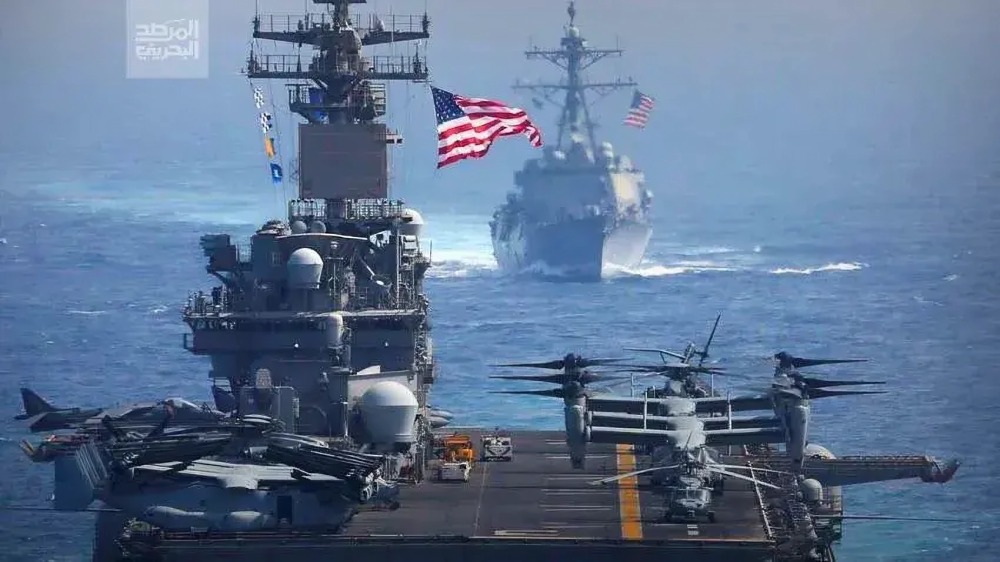


Barran Press
Washington, D.C. – An analysis published on Saturday, November 23, 2024, by KHQ highlights the urgent need for the United States to adopt an offensive strategy against Houthi threats, particularly by targeting their command and control centers, logistical infrastructure, and drone production facilities.
The piece, authored by Kevin Chang, a researcher at the Yorktown Institute, argues that without a shift to an offensive posture, the Houthi threat will persist, undermining Western influence and regional stability. Chang warns that failing to decisively neutralize the Houthis could allow them to regroup and escalate their operations.
The analysis calls for the U.S. to disrupt the financial and logistical support that Iran provides to the Houthis. This includes expanding targeted sanctions on Iranian financial institutions and the Islamic Revolutionary Guard Corps (IRGC), alongside implementing secondary sanctions to deter external entities from facilitating transactions that support the Houthis.
Such measures, according to Chang, would increase economic pressure on Iran, forcing it to reconsider the costs of its involvement with the Houthis. Additionally, he emphasizes the importance of offensive cyber operations to dismantle informal Iranian financial networks that fund Houthi activities.
The report also suggests that the U.S. should continue cyberattacks on Iranian and Houthi military assets, referencing recent operations targeting an Iranian spy ship that facilitated intelligence sharing with the Houthis. This strategic disruption is deemed critical to reducing the Houthis' ability to target vessels in the Red Sea.
Chang highlights the necessity for the U.S. to address the potential increase in support from Russia and China for Iran’s defense industry. He advocates for reforms within the United Nations verification and inspection mechanisms to enhance oversight of goods entering Yemen and ensure stricter enforcement of sanctions.
The Houthi threat, he argues, warrants serious attention as the group undermines the principle of freedom of navigation—an essential element of global stability. Disregarding this principle could embolden other malign actors to challenge it in critical regions.
Chang underscores that the U.S. must determine whether defending freedom of navigation is a priority, warning that neglecting this issue could lead to threats in strategic waterways such as the Suez Canal and the Taiwan Strait.
If the U.S. concludes that this principle is worth defending, he insists on adopting a firmer military stance against the Houthis and targeting their Iranian financial and logistical support. While the focus has been on the strategic partnership between Russia and China, Chang cautions against overlooking the threat posed by Iran-backed terrorist groups like the Houthis.
Intelligence sources indicate that Iran is facilitating discussions between the Houthis and Russia to secure P-800 Oniks cruise missiles, significantly enhancing the Houthis' capability to target ships in the Red Sea. It is reported that the Houthis are providing safe passage to Chinese cargo ships due to strong diplomatic ties between China and Iran.